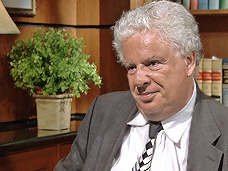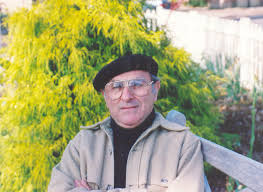Published 29-04-2013, 16:10
US-Russia relations may be headed for a Spring thaw. That much is apparent following the visit to Moscow on 15 April by Tom Donilon, President Obama’s National Security Adviser. Donilon held meetings with top Russian officials – including Minister of Foreign Affairs Sergey Lavrov, Security Council Secretary Nikolay Patrushev and Yury Ushakov, a senior foreign policy adviser to Putin – while the Russian president himself reportedly dropped in for 45 minutes during Donilon’s meeting with Ushakov. As for the discussions, these reportedly covered the full range of bilateral and global issues and, according to the White House, were "constructive”.
The clearest indication of an improvement in relations between the countries was the announcement that Putin and Obama are to meet on the margins of both the G8 summit in Ireland in June and the G20 meeting in St Petersburg in early September. Also, Donilon is reported to have delivered a personal letter from Obama to Putin. And according to Ushakov, Putin’s discussion with Donilon "had a rather positive nature, the same as the message sent by the Obama administration”.
These developments come just days after the publication of the list of Russian officials subjected to sanctions under the Magnitsky Act passed by the US Congress last year, which dealt such a huge blow to bilateral relations. They suggest that the two countries are now focusing on issues that unite rather than divide them. Obama clearly wants to circumvent persistent US concerns about the state of Russia’s democracy, while Putin is a "man who will compromise”, as his press secretary announced just ahead of Donilon’s visit. And although Moscow is nonplussed about the recently announced modifications to Washington’s ballistic missile defense deployment in Europe, both sides are keen to continue the dialogue over what is arguably the issue most damaging to bilateral relations.
Moreover, the recent tragic events in Boston may prove another impetus for demonstrating mutual goodwill – as was the case in the immediate wake of 9/11. Putin swiftly condemned the terrorist attacks in the capital of Massachusetts and, in a telegram to Obama, offered his country’s assistance in investigating them. Underscoring their shared interest in tackling terrorism, he commented that "the fight against terrorism requires the active coordination of efforts by the global community”.
Unfortunately, President Obama will have to navigate his new approach to Moscow through a Congress that remains unremittingly hostile to Russia and President Putin. Or, put another way, the White House will face an uphill struggle against a US political elite who, according to Stephen Cohen of New York University (a member of this Panel), know "almost nothing about Russia” and who have "no understanding of international affairs or national security”. Hence a big question mark hangs over the prospects for success of Obama’s new approach vis-a-vis Russia.
Questions:
•The US-Russia.org Expert Panel predicted earlier this year that the White House’s new foreign policy team headed by John Kerry would launch a new foreign-policy approach toward Russia based on realism. Are we now witnessing the first steps in that direction?
•Will Congress and those who oppose improved US-Russia relations in Russia be able to thwart this new policy approach?
 The topic for the Discussion Panel is provided by Vlad Sobell,
The topic for the Discussion Panel is provided by Vlad Sobell, Editor, Expert Discussion Panel
Professor, New York University, Prague
Editor, Consensus East-West Europe
Expert Panel Contributions
 Martin Sieff
Martin SieffChief Global Analyst, the Globalist
The new White House pragmatists are determined to bridge the gap
Prospects for a thaw in US-Russian relations should at least be regarded as hopeful in the coming months. The diplomatic signals coming out of both Moscow and Washington at the moment are real. And the main impediment to better relations in the first Obama administration is now gone.
Former Secretary of State Hillary Clinton thought she was sincere with her famous symbolism of displaying a big red "reset” button for relations with Russia when she took office four years ago. But Clinton’s idea of diplomatic give and take with the Kremlin – and with everyone else in the world – recalled Henry Kissinger’s joke about veteran German Foreign Minister Hans Dietrich Genscher. Like Genscher, Clinton’s idea of an ideal negotiation was a meeting where she laid down her maximum terms and expected everyone else to immediately accept all of them.
Her successor Secretary of State John Kerry, is a very different kind of person, and he has already started to direct US foreign policy in a very different tone and style.
Clinton talked a lot about change, but never made any. Her greatest passion was for adding bizarre new levels to the already cumbersome bureaucracy of the State Department to inject concerns about women’s rights, and the ideological promotion of democracy into every conceivable issue. She always spoke with a unipolar voice and never appeared interested in the answers she got from anyone.
However, John Kerry understands the true multipolar nature of the 21st century world. He listens to the answers he gets.
The life-defining experiences of Kerry are in marked contrast to those of Clinton. She was a lifelong ideological politician focused on women’s rights and social issues within the United States. Solely domestic American perspectives and priorities always conditioned the way she saw the wider world.
Kerry, by contrast, served with distinction as a young US Navy officer during the Vietnam War. He followed this with a highly successful career as a US foreign service and then, during his long career in the US Senate, became that body’s foremost expert on foreign affairs.
Unlike Clinton, Kerry made his first overseas trip as secretary of state to Europe and the Middle East. He has already visited Central Asia. He does not believe America can "go it alone” in the world any more. He has already signed off on new Defense Secretary Chuck Hagel’s decision to postpone the fourth stage deployment of medium and short range BMD interceptors in Poland and Romania, most notably the RIM-161 Standard Missile 3 (SM-3) II. US-Russian relations have an excellent chance of improving significantly during his term in office.
Kerry will not abandon traditional US concerns on promotion of democracy and human rights issues, but he will express them in talks privately and quietly, without trying to embarrass or undermine his interlocutors.
Kerry, like Clinton before him, will be the "vicar” of US foreign policy, the unchallenged chief advisor to the president on all foreign policy issues. He will not be challenged by the Pentagon and the secretary of defense and undermined by them, which was the fate that Secretary of State Colin Powell suffered during the first George W. Bush administration. Defense Secretary Hagel is a friend of Kerry’s and a former colleague of his for 12 years in the Senate. And like Kerry, he is a brave, combat-experienced veteran of the Vietnam War. On BMD and North Korea, the two men have already shown their impressive ability to coordinate their responses quickly and effectively.
Kerry is likely to establish a much better personal and working relationship with Foreign Minister Sergei Lavrov than did the notoriously insensitive Clinton.
President Barack Obama and Kerry will not be deterred by the usual chorus of hysteria from Republicans in Congress and their tame cheering section of media pundits. The president is still riding high with the American public on national security issues; and after his sweeping re-election victory by a winning margin of five million votes, he has made clear that he intends to be far less cautious, especially on foreign policy initiatives, than he was in his first term. Also, scaremongering about Russia gains no traction among the American public, whose problem is that it pays too little attention to relations with Russia rather than too much.
Kerry is already the unchallenged director of US foreign policy. His vast experience and personal qualities make him ideally suited to improve and restore the quality of US-Russian relations across the spectrum. He enjoys a unipolar moment of influence and power in Washington as he addresses the challenges of a multipolar world.
 Frank Shatz
Frank ShatzColumnist
The Virginia Gazette
Tom Donilon may have concluded that the US and Russia can "do business together”
It was W. Averell Harriman, a core member of the group of US foreign policy elders known as "The Wise Men,” who, as a US ambassador to Moscow during the Cold War, suggested to the State Department that the same travel restrictions be imposed on Soviet diplomats stationed in the US as those Moscow was imposing on American diplomats.
The State Department acted on Harriman’s suggestion and this was the start of an enduring tit-for-tat policy between the US and the Soviet Union. It didn’t solve any problems; rather, it only aggravated the relationship between the two countries.
Now, it seems, the same approach is being adopted by the US and Russia. But now there is a difference. Whereas during the Cold War the administration and Congress were singing from the same page, now, the Obama administration is determined to improve relations between the two countries, while many members of Congress, mostly for domestic political reasons, follow a harsh line.
Professor Stephen Cohen of the New York University and a member of this Panel, may be only partly right when he says that the "US political elite know almost nothing about Russia, and have no understanding of international affairs or national security.” Indeed, some members of Congress may not live up to his academic standards of understanding international affairs. But having interviewed scores of them during my years of punditry, I can attest to the fact that the congressional leadership has a good grasp of international issues. At the end of day, they are the ones who can sway members of Congress to support policies that would help improve the US-Russian relationship.
It would be also helpful to remember that both John Kerry, now Secretary of State, and Chuck Hagel, now Secretary of Defense, were leading members in the Senate, and their pragmatic approach to solving problems is likely to be supported by many of their former colleagues.
No question, there is a need to give members of the US Congress an opportunity to learn first-hand about conditions in Russia. Why not follow Israel’s example? Invite members of Congress to tour Russia, to meet the people there.
Margaret Thatcher helped to end the Cold War by proclaiming, "I like Mr. Gorbachev. We can do business together.” Tom Donilon, President Obama’s National Security Adviser, returning from his recent visit to Moscow, which included a 45 minute meeting with President Putin, may have arrived at the same conclusion.
Edward Lozansky
President American University in Moscow
Professor of World Politics, Moscow State University
Is there a sound US anti-terror policy?
Witnessing the horrific events in Boston, it is hard to remain in a purely analytical mode. However, these events are a sober reminder of 9/11 and of the inexcusable waste of time since then – time during which the West and Russia could have joined forces in the war on terror by committing themselves to deeds, not just fine rhetoric. Indeed, far too much time has been wasted. That is because Washington chose to ignore Putin's repeated appeals for cooperation and instead preferred to push its misconceived democracy promotion agenda down his throat.
The Boston tragedy might have been averted had Obama's administration showed more professionalism in security matters instead of high-handedly ignoring Moscow's offers of help. Had this tragedy occurred during President Bush's term in the White House, all the blame could have been laid on the poor "Dubya”, who, in truth, did keep turning down Putin's proposals for closer security cooperation. However, it was in 2011 that an entity clumsily described by the White House spokesmen as a foreign government" – now acknowledged by FBI officials to be Russia – asked for information about Tamerlan Tsarnaev, one of the perpetrators of the Boston outrage. The Russians told the Americans that this individual could be a high risk, but the FBI never followed up on that lead since – listen to this – "it did not have the legal authority to keep tabs on him”.
Now the federal investigators are hurrying to review a visit that one of the suspected bombers made to Chechnya and Dagestan, the predominantly Muslim republics in the North Caucasus region of Russia.
Ironically, many members of Congress have expressed concern about the FBI's handling of a request from Russia to examine this individual’s possible links to extremist groups in the region. I wonder if these are the very same legislators who were pushing for all kind of tough sanctions against Russia.
It would also be appropriate to recall here the activities of the American Committee for Peace in the Caucasus (formerly in Chechnya) (ACPC), which are funded by the US government and other sources. The ACPC claims to be "dedicated to monitoring developments in the region and providing expert analysis of their implications for security, stability and the human rights situation”.
On closer inspection, however, the ACPC promotes the idea that the folks linked to the North Caucasus rebel groups are "good guys” since they highlight the undemocratic nature of Putin's Russia. It also cultivates support for their cause by emphasizing the seriousness of human rights violations in this region. Moreover, it heavily – and successfully – lobbied for the National Endowment for Democracy (NED) grant to be awarded to Ilyas Akhmadov, a self-styled "foreign minister” in the so-called Chechen "government in exile”, a man whom Moscow describes as a terrorist.
Another Chechen exile, Akhmed Zakayev, who is also on Moscow's terrorist list but who was nevertheless granted political asylum in the UK, recently made a sensational statement accusing the Georgian President Mikheil Saakashvili of arming and training a group of Chechen saboteurs and planning to send them to Russia in 2012.
"People from Saakashvili's inner circle brought a group of Chechens from Europe, organized their training, provided them with weapons and were supposed to arrange a safe corridor for them to enter Dagestani territory," Zakayev said on Georgian radio on 18 April.
It is fitting to recall that Saakashvili was and probably still is on the "best friends” lists of George W. Bush, Condoleezza Rice, John McCain and other color revolution promoters in Georgia, Ukraine and the world over.
Back to Obama and his crew, including the new Secretary of State John Kerry. Many observers and commentators counted on his knowledge and expertise to correct Hillary Clinton's erratic policies. However, today John Kerry proudly announced US financial support for the Syrian opposition is to be doubled to $250 million. In case you have not heard, the most powerful wing of this opposition is a prominent jihadist group, the al-Nusra Front. Abu Bakr al-Baghdadi, leader of the Iraqi wing of al-Qaeda, said that al-Nusra is battling for an Islamic state in Syria and that both groups are merging.
So it looks like the US is openly funding, even if indirectly, the al-Nusra group, which is listed as a terrorist organization. Can anyone explain what is going on here? I admit I cannot.
 Ira Bubnova
Ira BubnovaAmerican University in Moscow
US and Russia have wasted a lot of valuable time
It is with great sadness that I feel compelled to comment that the American and Russian authorities must now surely realize that they should have worked together to prevent tragic events such as the Boston bombing and 9/11. How much more time will be wasted, how many more fruitless laws – such as the Magnitsky and anti-Magnitsky acts – will be passed before the two countries acknowledge the need to join forces to fight their common enemies?
It seems as if America (but especially the US Congress) is unaware of what is really happening in the world – that the world has changed enormously. The globe has become multipolar; the American superpower is no more and the "red enemy” has vanished. The world is getting tired of America’s "democracy lectures”.
Although we are forced to acknowledge that the "reset” policy brought meager results, it was a commendable effort. I think Obama realizes that there is a common agenda on Iran, North Korea and Afghanistan as well as on the new terrorist attacks and would like to make a fresh start. But what have we just heard? Washington has decided to double US aid to the Syrian opposition. It seems that the US and its Middle Eastern allies are planning to split the country asunder, along the lines of what has already happened in the Balkans and Afghanistan. Russia's stance on this issue is not anti-American; rather it is rooted in Moscow’s own understanding of the possible negative consequences of such a divisive policy.
I remain to be convinced that just because Obama’s National Security Adviser Tom Donilon held "constructive meetings” with Russian officials, we can talk of a new wave of pragmatism. But the announcement that Putin and Obama are to meet on the margins of both the G8 summit in Ireland in June and the G20 meeting in St Petersburg in September is certainly a promising sign.
 Jan Cleave
Jan CleaveAnalyst, Russia/FSU research
Trusted Sources, London-based investment research company
A new chapter in US-Russia relations would be a fitting tribute to the victims of last week’s tragedy in Boston
The terrorist outrage in Boston and Putin’s rapid response certainly does recall September 2001, when President Putin was famously the first foreign leader to express his condolences to the American people and President George W. Bush personally. Unfortunately, that message of sympathy – which was accompanied by an offer of practical cooperation in US anti-terror operations – came at a time when the US was experiencing its "hyper-power moment”.
Having just experienced a prolonged period of steady economic expansion – while Russia was only beginning to emerge from its post-Soviet depression – the US perhaps understandably believed that it needed no one, and certainly not Russia, as an ally in its "war on terror”. Indeed, President Bush and his team were soon to stride into the quagmire of Iraq, supported by Britain but opposed by other key European allies such as Germany and France.
Rather than grasping Moscow’s offer of friendship, George W. Bush’s White House embarked on what can only be described as a new Cold War against Russia. Sweeping aside Moscow’s objections, in December 2001 it abandoned the 1972 anti-ballistic missile treaty (ABM) – the foundations of the balance of power during the Cold War era – thereby paving the way for the development of the ballistic missile defense (BMD), which Russia continues to bitterly oppose. In February 2002 Defense Secretary Donald Rumsfeld described Russia as a ''part of the problem'' in the proliferation of weapons of mass destruction. There followed a series of US-supported "color revolutions” in the former Soviet Union, which potentially threatened what was seen as the "increasingly autocratic” regime of President Putin.
At the same time, some organizations and prominent individuals in the US demonstrated a staggering lack of judgment by directly or indirectly providing succour to the Chechen "freedom fighters”, simply because they were opposed to Putin’s Russia. Perhaps most troubling was the implicit support for the Chechen push for independence under the auspices of the American Committee for Peace in Chechnya (ACPC), founded in 1999 at the onset of the Second War in Chechnya.
The situation today is very different. After its bitter experience in Iraq and Afghanistan, it is to be hoped that the US is much wiser. As President Obama’s second term gets under way, the White House has a new foreign policy team headed by the seasoned realist John Kerry and appears keen to open a wholly new chapter. And, once again, Obama’s opposite number, Vladimir Putin, has extended the hand of friendship, signalling a desire to start working on issues on which both countries are united. High on that agenda is the fight against terrorism.
As if to demonstrate that nothing concentrates minds better than a tragedy in one’s own backyard, there have been signs that the US political class is already changing its tune vis-a-vis Russia’s struggle with Islamist terrorism. Thus on 19 April former New York Mayor Rudolph Giuliani stated, "We’ve been, I’m not going to say sympathetic with them, but we’ve certainly been critical of Putin and how far he’s gone in dealing with Chechnya … I would imagine there are people in Russia who believe that [the US] has been somewhat unrealistic about the Chechens.”
It is, of course, too early to speak with confidence about a new chapter in US-Russia’s relations. However, there would be no more fitting tribute to the victims of last week’s tragedy than if just such a development were to take place.
 Ekaterina Blinova
Ekaterina BlinovaFellow of the American University in Moscow
Nizhniy Novgorod
Russian politicians should get more active and work with their US opposite numbers
During President Obama’s first term, the general line of diplomacy was already set. The White House spoke about the "reset”, "soft power”, "smart power” and so on. I do not believe that the second term will bring any major surprises.
At the same time we are witnessing a sort of "witch hunt” both in the US and Russia: the "Russophobic lobby” is getting ever more vocal in the US, while in Russia the anti-American rhetoric flourishes. Although Russian anti-Americanism is understandable (owing to the aggressive expansion of NATO and America’s "winner-takes-all” approach to Russia over the last 20 years), it has not yet had any tangible practical results; on the contrary, it has contributed only to a worsening of US-Russia relations. What Russia really needs is a highly transparent realpolitik approach. There are financial and industrial groups in the US that have a strong interest in developing normal trade relations with Russia. Indeed, Anders Aslund, a senior fellow of the Peterson Institute for International Economics, wrote a report in 2012 in which he advocated the establishment of Permanent Normal Trade relations with Russia.
New "rules of the game” need to be set for Obama’s second term. Some groups in Washington advocate that relations with Russia be put on the same footing as in the final years of the 20th century. Thus Ariel Cohen of The Heritage Foundation wrote:
"Moscow needs to recognize that the US is not a threat. It should stop conducting itself like an antagonist and return to a partnership with the US, which characterized the last quarter of a century.” This conclusion is completely rational and should be welcomed. However, while Russia does want to engage in constructive collaboration with the US, it does not want to return to the unequal partnership that was very much in evidence during the presidency of Boris Yeltsin, when Russia was considered a third-rate satellite of hegemonic America.
Indeed, Russia’s goals are well balanced, as is evident from its new "Foreign Policy Concept”. Moscow is steering clear of any imperial ambitions while advocating independent policy-making and close cooperation with the leading global players based on equality and transparency.
Stephen F. Cohen has noted that the US political elite know "almost nothing about Russia”. Unfortunately, I do not see many Russian politicians trying to change this unfortunate situation by seeking to establish a working relationship with their American opposite numbers. Russian politicians should actively work toward closer informal relations with the American political elite.
Not all Senate and Congress members are suspicious of Russia. There are policy-makers who express positions similar to Russia’s on important issues. For example Senator Ron Paul, a senior and respected figure in the Republican Party, has pointed to "anti-Constitutional” wars and military expansion of the US and NATO. (His book "A Foreign Policy of Freedom: Peace, Commerce and Honest Friendship” contains a detailed analysis of the American foreign policy over the last 50 years.) He was also very skeptical about the wisdom of adopting the Magnitsky Act, calling it a "provocative interference into Russia’s internal affairs”. Clearly, there are people in Washington who can be considered Russia’s allies. We should combine our efforts to achieve mutually beneficial outcomes.
Russian policy-makers, for their part, must pay more attention to the political situation in the US right now. After the 2012 elections the preparations for the 2016 presidential campaign have already begun. New political and financial alliances are being forged and certain changes in the political sphere may occur. Russia should not lose the opportunity to establish closer ties with the US political elite and prepare for the new balance of forces in 2016. If Russian politicians desire real improvements in Russia-US relations they should work continuously, not waiting for "favorable weather” or a "friendly wind”. As an old Latin proverb goes, Amat victoria curam (Victory loves preparation).



_jpg/250px-ElbeDay1945_(NARA_ww2-121).jpg)





